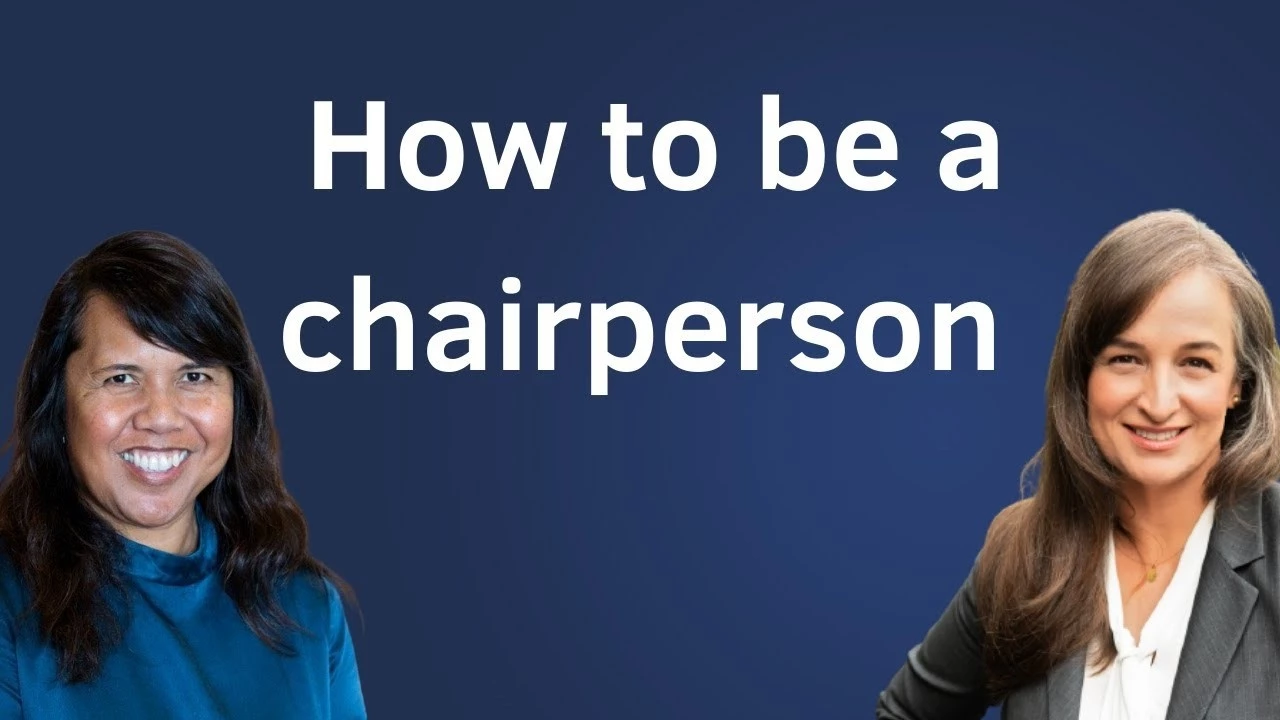Episode 105 - Understanding the Role of Chairperson - with Moana Weir (Part 2)

This is the second half of my conversation with Moana Weir, the Chair of the Equal Opportunity and Human Rights Commission Victoria (VEOHRC). In the previous episode (104), we discussed Moana's approach to building a portfolio of board appointments, inspiring and advising executives willing to transition into governance roles. This episode focuses on her role as chair.
We discuss the difference between chairing versus being a board member, the extra responsibilities, and what that entails. We also discuss the work of the Equal Opportunity and Human Rights Commission. So this conversation will be exciting for both aspiring board members and chairs, executives interested in diversity and inclusion, equal opportunity, and human rights issues in the workplace. The timestamps below are a great representation of the broad range of topics we addressed.
It was an absolute pleasure to interview Moana, and I hope you enjoy this conversation as much as I did.
Resources mentioned in this episode
Timestamps to guide your listening
Transcript of this episode
About the Host
Hello, I’m Renata Bernarde, the Host of The Job Hunting Podcast. I’m also an executive coach, job hunting expert, and career strategist. I teach professionals (corporate, non-profit, and public) the steps and frameworks to help them find great jobs, change, and advance their careers with confidence and less stress.
If you are an ambitious professional who is keen to develop a robust career plan, if you are looking to find your next job or promotion, or if you want to keep a finger on the pulse of the job market so that when you are ready, and an opportunity arises, you can hit the ground running, then this podcast is for you.
In addition to The Job Hunting Podcast, , on my website, I have developed a range of courses and services for professionals in career or job transition. And, of course, I also coach private clients.
Contact Renata Bernarde
I’m determined to help you! I want you to feel empowered, nail your next job, and have the career you want.
My free resources for job hunters: The Optimized Job Search: Weekly Schedule & Masterclass.
Learn more about my services, courses, and group coaching: RenataBernarde.com
